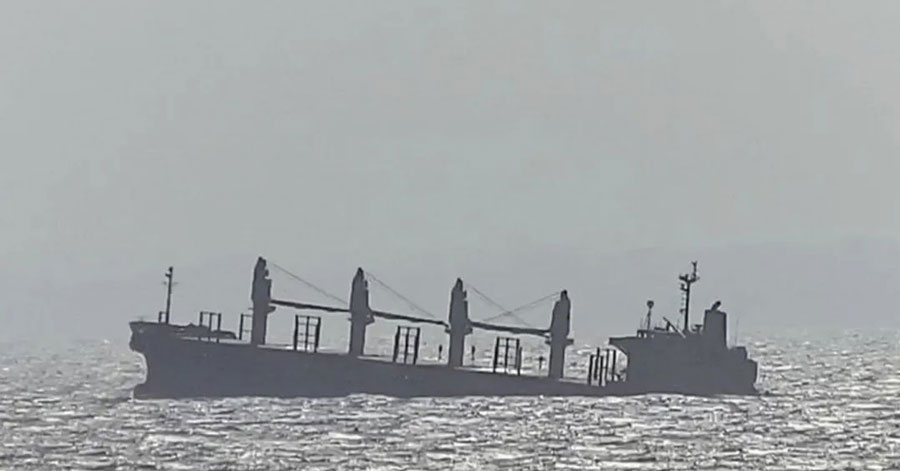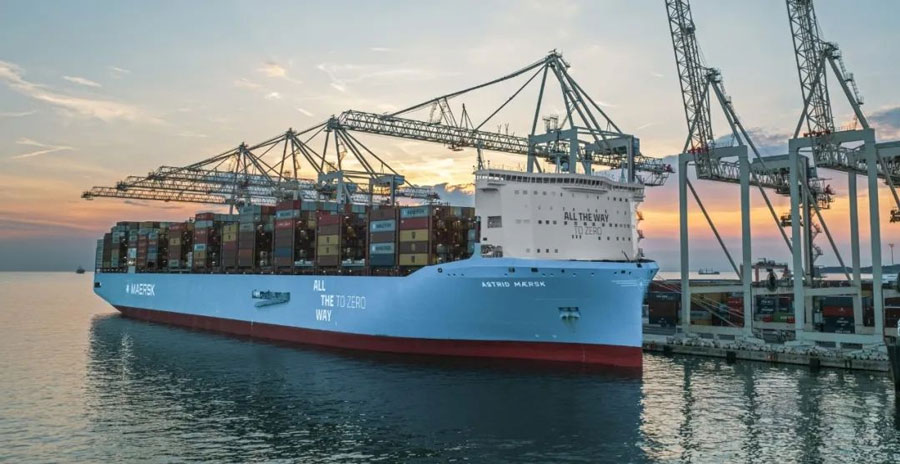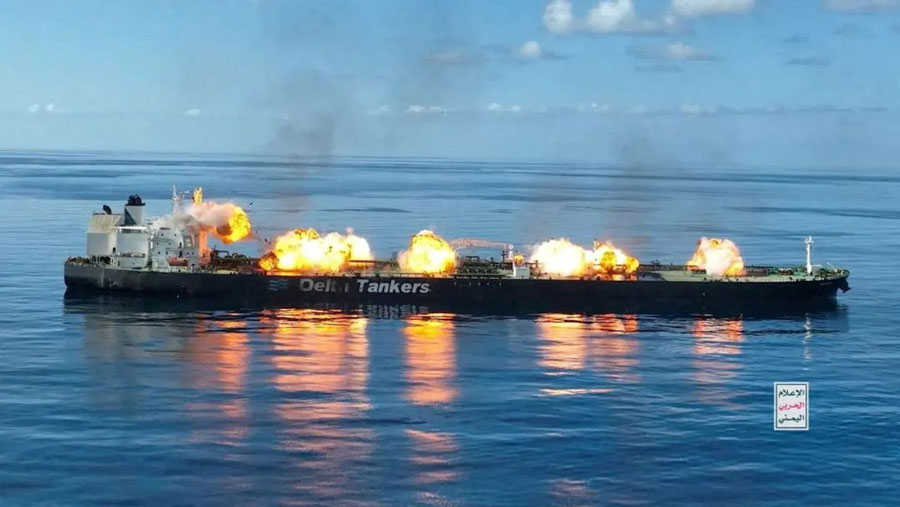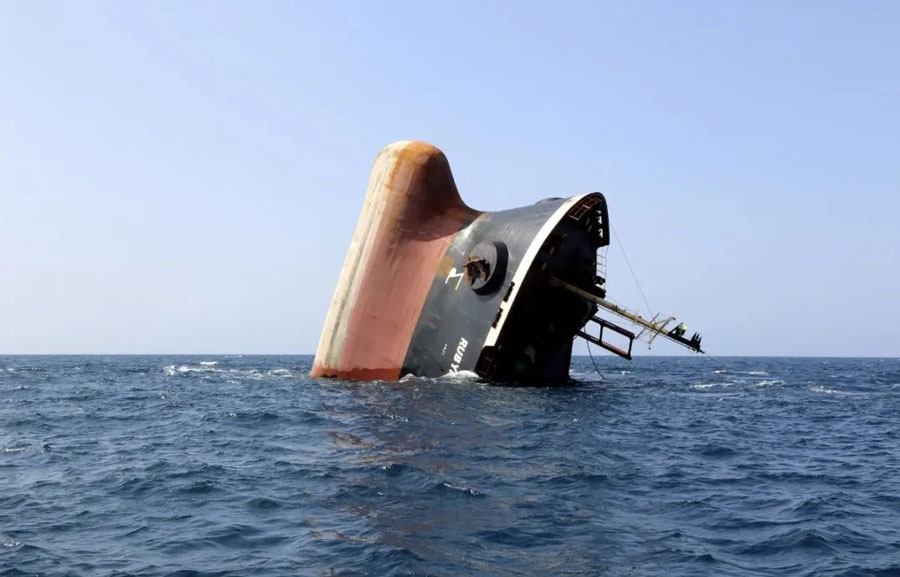

Shipping giants: Shipping will not return to the Red Sea anytime soon
The "wait and see" attitude of the shipping industry has not changed after the lull in the Gaza conflict, and shipowners and industry analysts do not believe it will be enough to prompt shipping lines to re-enter the Red Sea region and stop circumnavigating Africa.
The Houthis have launched attacks on commercial vessels transiting the Red Sea since mid-November 2023, claiming the move was in retaliation for Israel's military operation in the Gaza Strip and to pressure Israel and its Western Allies to halt the conflict with Hamas. It is estimated that more than 100 ships have been attacked.
The shipping industry is still in a wait-and-see mode as to whether the Red Sea will reopen. The industry generally believes that the attitude of the Houthi armed forces is the key factor affecting whether the shipping industry can resume the Red Sea route.
A spokesman for Hapag-Lloyd said: "The ceasefire has just been agreed and we will closely monitor the latest developments and their impact on the security situation in the Red Sea." The company stressed that it is not yet possible to predict when it will be able to resume the Red Sea route. In fact, Hapag-Lloyd pointed out as early as June last year that the ceasefire agreement does not mean that the shipping route through the Suez Canal can be immediately resumed, because the risk of attacks by Houthi forces in Yemen remains. A company spokesman said at the time that rescheduling the route schedule could take four to six weeks.
A Maersk spokesman echoed similar sentiments, saying it was "too early to speculate on the timing of the resumption of routes."
Meanwhile, Lars Barstad, CEO of oil tanker giant Frontline Management, also made clear on social media that the ceasefire agreement itself does not mean that the shipping industry can return to normal, "We are all hopeful about the ceasefire, but my comments in June still stand."
Pareto Securities analyst August Klemp said at the latest seminar that while a ceasefire agreement could be the first step towards reopening the Red Sea, a real return to normal navigation would require a change from the Houthis: "Israel's ceasefire with Hamas is one thing, and the Houthis' actions are another."
Mark Williams, head of UK-based Shipping consultancy Shipping Strategy, shares this view with Lars Jensen, head of container shipping consultant Vespucci Maritime. The former said: "Previous ceasefire declarations have come to nothing, I would be cautious." Even if the cease-fire takes hold, the Houthis have every reason to continue, because it keeps their demands in the public eye and gives them leverage in negotiations."
Fearnleys analysts Fredrik Dybwad and Nils Thommesen said the ceasefire was a first step towards reopening the Red Sea and Suez Canal, but it was still possible the Houthis would continue attacks to secure their ports and oil infrastructure in Yemen. Moreover, Iran is likely to step up its support for the Houthis, making them the proxy of last resort against Israel.
The pair noted that if the Red Sea were to reopen, the ton-miles of container ships, car carriers, and oil product and chemical tankers would fall. This is expected to have a negative impact on freight rates in related industries, especially container ships and car carriers, with voyages around the Cape of Good Hope absorbing the growth in vessel supply.
August Klemp further said that despite the increase in ton miles and the decrease in effective fleet supply, product tanker rates have fallen to multi-year lows. Refined product tankers and chemical tankers used to have trading flexibility, with vessels in the Mediterranean region able to travel to Asia depending on market conditions. However, with ships having to circumnavigate Africa, ships were restricted to transacting east or west of the Suez Canal.
The crisis in the Red Sea has had a profound impact on the global shipping industry, with shipping companies still wary of returning to Red Sea routes despite the ceasefire agreement between Israel and Hamas. The motive of the Houthi attack is complex, involving multiple factors such as regional political and economic interests and international relations. The industry's wait-and-see attitude reflects its sensitivity to risk and its ability to react quickly to changes in the market. The restoration of security in the Red Sea is more than a ceasefire agreement can solve, and the movement of the Houthis remains the key to influencing decisions in the shipping industry. While the resumption of global trade depends on the unblocking of vital shipping lanes, shipping companies must be more cautious in making decisions about restoring routes. Changes in the situation may bring short-term market volatility, but in the long run, the shipping industry still needs to maintain flexibility in an uncertain geopolitical environment to ensure crew safety and maximize shipping benefits.
The Houthis have launched attacks on commercial vessels transiting the Red Sea since mid-November 2023, claiming the move was in retaliation for Israel's military operation in the Gaza Strip and to pressure Israel and its Western Allies to halt the conflict with Hamas. It is estimated that more than 100 ships have been attacked.

The shipping industry is still in a wait-and-see mode as to whether the Red Sea will reopen. The industry generally believes that the attitude of the Houthi armed forces is the key factor affecting whether the shipping industry can resume the Red Sea route.

A spokesman for Hapag-Lloyd said: "The ceasefire has just been agreed and we will closely monitor the latest developments and their impact on the security situation in the Red Sea." The company stressed that it is not yet possible to predict when it will be able to resume the Red Sea route. In fact, Hapag-Lloyd pointed out as early as June last year that the ceasefire agreement does not mean that the shipping route through the Suez Canal can be immediately resumed, because the risk of attacks by Houthi forces in Yemen remains. A company spokesman said at the time that rescheduling the route schedule could take four to six weeks.
A Maersk spokesman echoed similar sentiments, saying it was "too early to speculate on the timing of the resumption of routes."
Meanwhile, Lars Barstad, CEO of oil tanker giant Frontline Management, also made clear on social media that the ceasefire agreement itself does not mean that the shipping industry can return to normal, "We are all hopeful about the ceasefire, but my comments in June still stand."

Pareto Securities analyst August Klemp said at the latest seminar that while a ceasefire agreement could be the first step towards reopening the Red Sea, a real return to normal navigation would require a change from the Houthis: "Israel's ceasefire with Hamas is one thing, and the Houthis' actions are another."
Mark Williams, head of UK-based Shipping consultancy Shipping Strategy, shares this view with Lars Jensen, head of container shipping consultant Vespucci Maritime. The former said: "Previous ceasefire declarations have come to nothing, I would be cautious." Even if the cease-fire takes hold, the Houthis have every reason to continue, because it keeps their demands in the public eye and gives them leverage in negotiations."

Fearnleys analysts Fredrik Dybwad and Nils Thommesen said the ceasefire was a first step towards reopening the Red Sea and Suez Canal, but it was still possible the Houthis would continue attacks to secure their ports and oil infrastructure in Yemen. Moreover, Iran is likely to step up its support for the Houthis, making them the proxy of last resort against Israel.
The pair noted that if the Red Sea were to reopen, the ton-miles of container ships, car carriers, and oil product and chemical tankers would fall. This is expected to have a negative impact on freight rates in related industries, especially container ships and car carriers, with voyages around the Cape of Good Hope absorbing the growth in vessel supply.

August Klemp further said that despite the increase in ton miles and the decrease in effective fleet supply, product tanker rates have fallen to multi-year lows. Refined product tankers and chemical tankers used to have trading flexibility, with vessels in the Mediterranean region able to travel to Asia depending on market conditions. However, with ships having to circumnavigate Africa, ships were restricted to transacting east or west of the Suez Canal.
The crisis in the Red Sea has had a profound impact on the global shipping industry, with shipping companies still wary of returning to Red Sea routes despite the ceasefire agreement between Israel and Hamas. The motive of the Houthi attack is complex, involving multiple factors such as regional political and economic interests and international relations. The industry's wait-and-see attitude reflects its sensitivity to risk and its ability to react quickly to changes in the market. The restoration of security in the Red Sea is more than a ceasefire agreement can solve, and the movement of the Houthis remains the key to influencing decisions in the shipping industry. While the resumption of global trade depends on the unblocking of vital shipping lanes, shipping companies must be more cautious in making decisions about restoring routes. Changes in the situation may bring short-term market volatility, but in the long run, the shipping industry still needs to maintain flexibility in an uncertain geopolitical environment to ensure crew safety and maximize shipping benefits.





